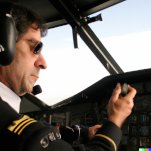Quick Decision

It really is simple to make a quick decision if you know the process that you should follow. Instead of relying on others' advice and opinions on your decisions. Stressing yourself out over what other people may think about the decisions that you make is certainly not good for your health and it's not good for your ego, either. Let's face it-- the other people in your life that you talk to won't have to live with the decisions that you make, but you ultimately will. By setting in motion a process for making a quick decision now, you'll have a future reference when trying to make choices down the road.
The Problem or Dilemma
First, take a step back to look at the whole picture or problem that you have in front of you. Understanding the problem or decision to be made is probably the most important step. Next, write down the problem that you have so that you'll have a clear focus on what's ultimately important.
The Quick Decision Problem
The reason you want to make a quick decision is probably because of the weight of time. If you don’t make that quick decision, it may be an opportunity lost. It could also mean that a disaster is lurking. Therefore, you don’t have time to gather data and make a list of alternatives. You don’t want to make a decision based entirely on emotion either. Those decisions often end up badly. Instead, you want to use intuition that is based on past experience to make that quick decision.
Developing Your Intuition
Military officers and police officers are trained to make quick high-stress decisions. The consequences of their actions can be life or death. Their extensive training includes learning how to evaluate a situation quickly. They must identify potential threats, and respond appropriately. The goal is to minimize harm to themselves and others. This training develops a natural instinct for making quick decisions.
Their decisions may not always be correct. Yet, the probability of
them making the right decision is much higher. The probability would be much
lower for an untrained person. The training that military and police officers
undergo, helps them react quickly. They
can't afford to get bogged down by indecision or doubt. They learn to rely on
their instincts. Instinct based on years of experience and training. They can
make decisions that are in the best interest of everyone involved.
Besides, military and police officers also work
in teams. They have access to advanced technology and equipment. These things
further enhance their decision-making abilities. They are also held to a high
standard of accountability for their actions. This incentivizes them to make
the best decisions possible in any given situation.
Training for Fast Decisions

Training is a key aspect of making a quick decision in high-pressure situations. It is important to have a clear understanding of the situation and what needs to be done. This ensures the best possible outcome. Pilots, for example, train for months on end to prepare for any emergency that may occur during a flight. This training helps them to remain calm and focused. It allows them to make quick, informed decisions that can save lives.
Nonpilots would not know what to do in an emergency situation on a flight. This lack of training and experience would cause panic and confusion. That can make the situation much worse. Untrained, it is difficult to make quick and informed decisions. The training can help to mitigate the effects of an emergency situation.
Training is a key aspect of making a quick decision in high-pressure situations. It is important to have a clear understanding of the situation and what needs to be done. This ensures the best possible outcome. Pilots, for example, train for months on end to prepare for any emergency that may occur during a flight. This training helps them to remain calm and focused. It allows them to make quick, informed decisions that can save lives.
Nonpilots would not know what to do in an emergency situation on a flight. This lack of training and experience would cause panic and confusion. That can make the situation much worse. Untrained, it is difficult to make quick and informed decisions. The training can help to mitigate the effects of an emergency situation.
Trust Your Gut
At this point, you should have an instinctive idea of what your options are. You know what the potential outcomes of each decision may be. Trust your gut and go with the option that feels right for you. It's important to remember that no decision is ever perfect, but you can make the best decision possible with the training and resources that you have available. Just try to separate your gut feeling from your emotions.
Act Quickly
The imperative is to act quickly once you have arrived at a decision. It is crucial not to engage in self-doubt or overanalyze the choice. Analysis paralysis is the antithesis of a quick decision. Have faith that you have made the correct determination and proceed with certainty. It is important to keep in mind that time is of the essence. Delays could result in missed opportunities or even death.
Conclusion
Reflecting on the decision making process is important once you have acted on your decision. Take the opportunity to contemplate what you have learned and how you can apply it to future choices. Assess what aspects were successful and identify opportunities for improvement. Utilize this newfound knowledge to enhance your decision making abilities and make better decisions in the future.
The process of making quick decisions can be daunting. However, with a thorough comprehension of the situation, rely on your intuition to make expedient and appropriate decisions. Do not allow the fear of others’ opinions to hinder your decision making. Always remember that no decision is infallible. If you make a mistake, then learn from it. Trust your intuition and yourself. Once you do, you can confidently make quick decisions.
